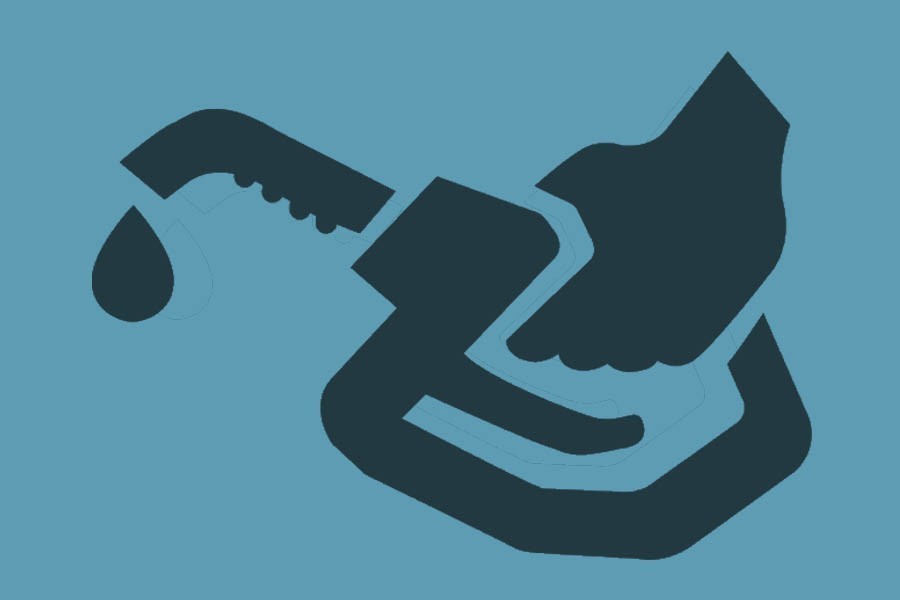The Federation of Bangladesh Chambers of Commerce and Industry (FBCCI) in a letter to the Prime Minister has appealed for a review of the fuel price hike for readjustment through waiver on existing duties and taxes of petroleum products. Considering the pressing need for addressing the snowballing consequences of fuel price hike, the FBCCI has suggested revising downward the prices of fuels, including diesel, kerosene, octane and petrol which saw a 47 per cent increase on an average. The fallout of fuel price rise has been pervasive particularly for the poor, lower middle and middle classes of the country. The timing of this is most inappropriate because people are yet to recover from the economic downturn and losses during the pandemic.
True to experts' fear, the fuel price hike has already set into motion a chain reaction inviting inflation. Transport fare, prices of daily essentials and the production cost of goods have all gone up. An unavoidable setback for agricultural production is also feared. According to sector specialists, the rise in diesel price will increase the cost of cultivation of a bigha of land by Tk 1,000, which may act as a disincentive for farmers to go for rice farming. No doubt a threat to future food security! There are around 1.5 million, it remains farm machines, 75 per cent of which run on diesel.
The decision of the government to increase fuel prices on the ground of price volatility on the international market has been questioned by the High Court. The court issued a rule asking the Energy and Mineral Resources Division, among others, to explain why the decision to increase fuel oil prices by 42.5-51.68 per cent should not be declared illegal. Responding to a public interest litigation writ petition, the court has observed that the Energy and Mineral Resources Division does not have the authority to set prices as it is the responsibility of the Bangladesh Energy Regulatory Commission to do so. In accordance with the law, the Commission can increase or change prices in consultation with the energy ministry and others concerned. The entire process, as outlined in the law, should take at least 90 days before a new price decision is finalised. In the present case, the increased prices were enforced in one working day. On the other hand, according to the think tank Centre for Policy Dialogue (CPD), the Bangladesh Petroleum Corporation could have used nearly Tk 47 billion it earned as profit since 2015 to continue the subsidy on fuel and thus prevent the price hike. The BPC could also have offset the losses it has been incurring over the last six months, said the think tank. The BPC earned at least Tk 46 billion, according to the government, since 2015 and spent only Tk 9.2 billion on 11 self-funded development projects.
The issue of legality of the decision as well as its arbitrariness makes a valid point to revisit it. Over and above, the widespread impact on the entire economy does call for a revision of the decision in favour of readjustments. The price fall in international market, lately, should also serve as a good enough reason for doing so.


